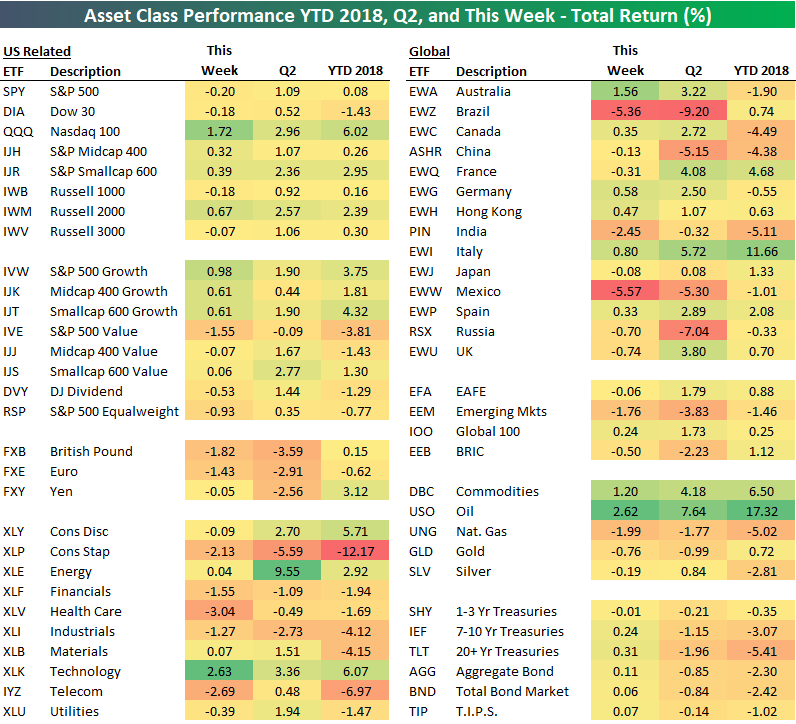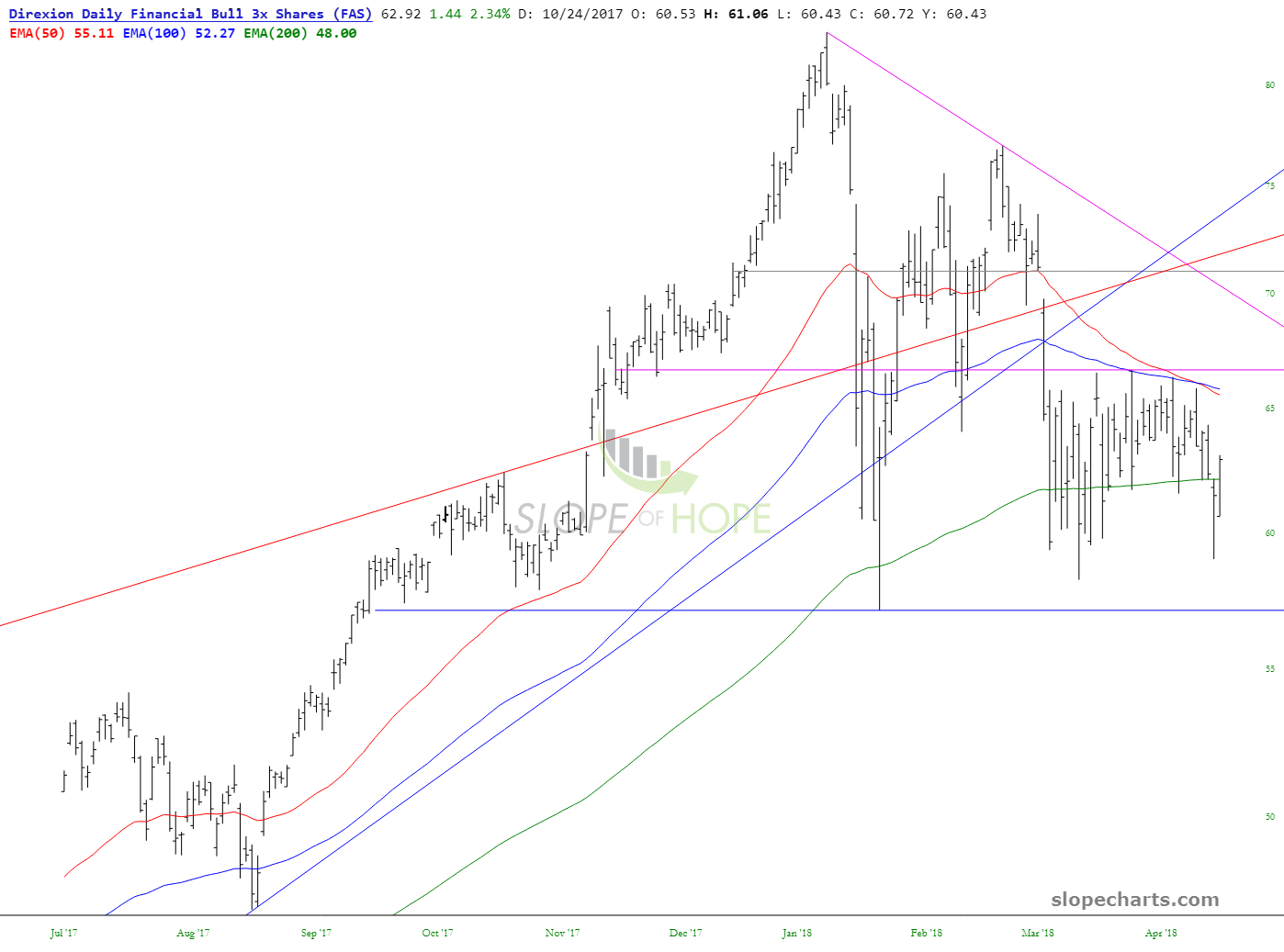Written by Econintersect
 Econintersect: Due to a technical error WWRT was not included in today’s newsletter. For that reason we are posting it as a public document so that subscribers will not miss it. A side benefit to everyone else is the availability of the feature to them as well.
Econintersect: Due to a technical error WWRT was not included in today’s newsletter. For that reason we are posting it as a public document so that subscribers will not miss it. A side benefit to everyone else is the availability of the feature to them as well.
Every day our editors collect the most interesting things they find from around the internet and present a summary “reading list” which will include very brief summaries (and sometimes longer ones) of why each item has gotten our attention. Suggestions from readers for “reading list” items are gratefully reviewed, although sometimes space limits the number included.
Please share this article – Go to very top of page, right hand side, for social media buttons.
This feature is published Monday, Wednesday, and Friday in the late afternoon New York time. For early morning review of headlines see “The Early Bird” published Monday through Friday in the early am at GEI News (membership not required for access to “The Early Bird”.).
BECOME A GEI MEMBER – IT’s FREE!
Most of this column (“What We Read Today”) is available only to GEI members.
To become a GEI Member simply subscribe to our FREE daily newsletter.
Special Notice: Due to staff travel there will be no WWRT Wednesday and Friday this week. We apologize for the inconvenience.
Topics today include:​
- When Will Electric Cars Take Over The Roads?
- The $20 Billion Lithium Story No One Knows About
- An Overview of Commercial Lithium Production
- A Small College’s Endowment Manager Beat Harvard With Index Funds
- Fidelity fires more than 200 over alleged misuse of reimbursement programs
- The Harvard Undergrad Fixing Finance
- Latest for Stocks: Tech Leads, Everything Else Lags
- Financials Notch First Crossover
- The Impressive Move of the World Out of Poverty
- The Visual World History of Poverty
- Federal judge rightly rebukes Mueller for questionable tactics
- Israeli Operatives Who Aided Harvey Weinstein Collected Information on Former Obama Administration Officials
- CIA delivers classified materials to Congress on Haspel
- The disappearing Chinese student visa
- AP review: More than 30 mishaps from armed adults at schools
- 111 Wild Horses Die in Drought-Ridden Navajo Nation
- May 3, 2018 Drought and Agriculture Report – Suffering Continues
- The Monopolization of America
- Sup-prime Auto Delinquencies Worse that the Great financial Crisis
- Iran Beset with Problems
- Labor Strikes and Worker Protests Erupt Across Iran: ‘This is Slavery’
- Trump’s trade war is pushing China and Japan closer together
- Will Tourism Ruin the Rainbow Mountain of Peru?
- And More
Articles about events, conflicts and disease around the world
Global
- The Impressive Move of the World Out of Poverty (Twitter) For more see The Visual World History of Poverty (Our World Data)
U.S.
- Federal judge rightly rebukes Mueller for questionable tactics (The Hill) Alan Dershowitz writes that an experienced federal judge has confirmed what I have been arguing for months, namely, that the modus operandi of special counsel Robert Mueller is to charge associates of Donald Trump with any crime he can find in order to squeeze them into turning against the president. This is what Judge T.S. Ellis III said at a hearing Friday:
“You don’t really care about Mr. Manafort’s bank fraud … What you really care about is what information Mr. Manafort could give you that would reflect on Mr. Trump or lead to his prosecution or impeachment.”
- Israeli Operatives Who Aided Harvey Weinstein Collected Information on Former Obama Administration Officials (The New Yorker) The Observer reported that aides of President Trump had hired Black Cube to run the operation to obtain discrediting information on people invovled in the Obama administration negotiations with Iran and their families in order to undermine the Iran deal, allegations that Black Cube denies.
- CIA delivers classified materials to Congress on Haspel (The Hill) The CIA has given Congress a tranche of classified documents related to the controversial undercover background of Gina Haspel, President Trump’s choice to lead the spy agency. The delivery – a single cardboard box marked “hand carry” that was wheeled in on a dolly to a secure facility in the Capitol basement – comes as the agency is under fierce pressure from Democrats to declassify more information about Haspel’s involvement in its now-defunct detention and interrogation program. A CIA spokesperson said in a statement:
“As Acting Director Haspel promised, CIA delivered a set of classified documents to the Senate today so that every Senator can review Acting Director Haspel’s actual, and outstanding record.”
- The disappearing Chinese student visa (Axios) Hat tip to Matthew Yglesias. There was a 17% drop in international students in the U.S. last year, mostly due to the 28% decline in Indian students and a 24% decline in Chinese students receiving visas.
The trend is at least partially attributed to President Trump’s immigration policy changes and rhetoric, which have led to fewer foreign students applying to study at U.S. institutions. Foreign students contributed $36.9 billion to the U.S. economy during the 2016-2017 academic year, according to the NAFSA Association of International Educators.
- AP review: More than 30 mishaps from armed adults at schools (The Charlotte Observer) Hat tip to Elliott Morss. In a span of 48 hours in March, the three were responsible for gun safety lapses that put students in danger. The school police officer accidentally fired his gun in his Virginia office, sending a bullet through a wall into a middle school classroom. The teacher was demonstrating firearm safety in California when he mistakenly put a round in the ceiling, injuring three students who were hit by falling debris. And the sheriff left a loaded service weapon in a locker room at a Michigan middle school, where a sixth-grader found it.
All told, an Associated Press review of news reports collected by the nonprofit Gun Violence Archive revealed more than 30 publicly reported mishaps since 2014 involving firearms brought onto school grounds by law enforcement officers or educators. Guns went off by mistake, were fired by curious or unruly students, and were left unattended in bathrooms and other locations.
- 111 Wild Horses Die in Drought-Ridden Navajo Nation (EcoWatch) Drought is being blamed for the deaths of 111 wild horses on Navajo Nation land in northern Arizona, according to tribal officials. {Sig Silber reports on drought condidtions every week. The latest: May 3, 2018 Drought and Agriculture Report – Suffering Continues.} The horses were found dead in a muddy stock pond near Grey Mountain over the past week. The Associated Press reported that animals usually drink from the stock pond but dry conditions left it with little water. Navajo Nation President Russell Begaye tweeted Tuesday that “due to drought conditions, the horses became stuck in the mud and were too weak from thirst to climb out.” Begaye warned:
“This is the beginning. The Navajo Nation has over 70,000 feral horses.”

- The Monopolization of America (Facebook) The monopolization of America is one of the biggest economic issues you’re hearing almost nothing about. It’s a hidden upward redistribution of money and power from the majority of Americans to corporate executives and wealthy shareholders. Robert Reich’s latest video explains why we must revive antitrust enforcement..
- Sup-prime Auto Delinquencies Worse that the Great financial Crisis (Saldutti Law Group) Trouble is brewing. Auto loans to customers with subprime credit ratings (FICO scores below 620) are risky affairs. During good times and endless cheap money, the high interest rates that can be extracted from credit-challenged car buyers options are just too tempting. Now the losses are coming home to roost.
Big banks have become relatively conservative in this category and have greatly tightened standards. This has made room for specialty lenders with fewer such compunctions. There are dozens of these smaller specialized subprime auto lenders, some of them backed by private equity firms. Three of them – Summit Financial Corp, Spring Tree Lending, and Pelican Auto Finance – have now collapsed into bankruptcy or were shut down. Allegations of fraud and misrepresentations swirling through the bankruptcy filings.
These lenders generally borrow from big banks to fund auto loans to subprime customers. The difference between the rates big banks charge those lenders and the rates those lenders obtain from their subprime customers (often in the double digits) is their margin.

Iran
- Iran Beset with Problems (Twitter) See also Labor Strikes and Worker Protests Erupt Across Iran: ‘This is Slavery’ (The Wall Street Journal).
Japan
- Trump’s trade war is pushing China and Japan closer together (Axios) Japan has long taken a hawkish stance against China’s growing influence, but the Asian rivals have recently been working to thaw their relationship after years of tension – in large part because both fear Trump’s trade war.
The big picture: The Japanese “still fundamentally see China as the greatest threat to Japan, and they’re still deeply reliant on the security relationship with the U.S. [in the East China Sea], but they’re hedging,” Dan Sneider, an expert on East Asia at Stanford University, tells Axios. “They’re accepting the reality that China’s going to be a major power, and they also have to hedge against the uncertainty of American foreign policy.”
Peru
- Will Tourism Ruin the Rainbow Mountain of Peru? (The New York Times) At first glance, the mountain in the Peruvian Andes, with its bands of soil the color of turquoise, lavender, red-violet and gold, seems Photoshopped. But the otherworldly sight, standing 16,000 feet above sea level, is real. People living nearby call it Vinicunca, the Rainbow Mountain.
The varicolored mountain, with sediment created from mineral deposits over millions of years, was discovered only about five years ago, locals say. But it has become a must-see attraction for hikers, bringing much-needed cash to the area but also prompting concern about possible damage to the previously unspoiled landscape.

Other Scientific, Health, Political, Economics, and Business Items of Note – plus Miscellanea
- When Will Electric Cars Take Over The Roads? (Oil Price) Out of 1 billion cars in the world, only 2 million are electric. But that will soon change, as costs diminish, and more governments encourage the adoption of EVs to cut carbon emissions and fight urban pollution. According to Bloomberg, by 2040, 54% of all new car sales will be for EVs. Millions of new EVs will take a big bite out of oil demand and displace 8 million barrels of transport fuel (gasoline and diesel) every day. But the biggest factor in the EV surge is what’s under the hood…lithium ion batteries:
Bloomberg estimates that in the late 2020s, cheap battery technology will allow EV production to skyrocket. The key is lithium, “white petroleum,” which is quickly becoming the world’s most sought-after mineral.
- The $20 Billion Lithium Story No One Knows About (Baystreet.ca) According to the U.S. Geological Survey (USGS), Canada is sitting on at least 1 million tons of lithium resource. That’s worth $20 billion at current prices. With demand growing exponentially (see preceding article), and the industry facing a 100,000 ton annual shortfall by 2025 – “Northern Lithium” should be more lucrative than at any time in history. And, since most of the exploration was done in the 1950’s – the true extent of this “Northern Lithium Reserve” is likely to be much, much larger. Today the biggest suppliers of Lithium are Australia and Chile, with significant amounts also coming from Argentina and Chile. Canada hopes to join that select group.. See also next article.
- An Overview of Commercial Lithium Production (the balance) For decades, commercial lithium production relied upon mineral ore sources such as spodumene, petalite, and lepidolite. However, extracting lithium from such sources is significantly more costly than extracting the metal from lithium-containing brines. In fact, the cost of extracting lithium from hard rock is estimated to be double that of producing from brines, explaining why most such sources have been priced out of the market since the early 2000s.
Salar brines can be described as underground reservoirs that contain high concentrations of dissolved salts, such as lithium, potassium, and sodium. These are generally found below the surface of dried lakebeds, known as salars.
- A Small College’s Endowment Manager Beat Harvard With Index Funds (Bloomberg) From his home office in Charlotte, one of the most successful investors in higher education plies his trade in blissful obscurity. Bill Abt employs no stable of hotshot bond traders. He doesn’t dabble in the fanciest Silicon Valley venture capital funds, hedge funds, or the latest computer-driven brainchildren of Ivy League physicists and mathematicians. Abt uses mostly low-cost, market-tracking index funds from Vanguard Group Inc.
Abt, on behalf of Carthage College, in Kenosha, Wis., has returns that beat Harvard’s $37 billion endowment and most others. In the 10 years through the most recent college fiscal year, ended on June 30, 2017, the former beer company executive racked up a 6.2 percent average annual return, according to the school. That performance is better than 90 percent of his peers, based on data from the National Association of College and University Business Officers. Harvard’s endowment, the nation’s largest, averaged just 4.4 percent a year in the same period

- Fidelity fires more than 200 over alleged misuse of reimbursement programs – WSJ (Investing.com) Fidelity Investments has fired or allowed more than 200 employees to resign over alleged misuse of workplace-benefit programs, The Wall Street Journal reported on Friday, citing people familiar with the matter. A company audit of computer-buying and physical-fitness benefit programs over the last year found misuse in offices across the country, the Journal reported.
- The Harvard Undergrad Fixing Finance (Bloomberg) JPMorgan, Bank of America, and big-name hedge funds are trying to diversify their staff. BLK Capital, run by two black Harvard undergrads, Angel Onuoha and Drew Tucker, wants to make it easier for them. They have formed their hedge fund with the purpose of providing experience to black students in finance before they graduate. They hope to change the low level of black participants in financial corporate management.

- Latest for Stocks: Tech Leads, Everything Else Lags (Bespoke) While the S&P 500-tracking SPY ETF fell 20 basis points on the week, the Nasdaq 100 (QQQ) rallied 1.72%. Looking at sectors, most fell, while Tech (XLK) was the only area of strength with a gain of 2.63%. Outside of the US, both Brazil (EWZ) and Mexico (EWW) fell 5%+, while Australia (EWA) was the only country to gain more than 1%. And while oil (USO) rallied, gold (GLD) and silver (SLV) declined.

- Financials Notch First Crossover (Investing.com) As brutal as last Friday was, the big picture still hasn’t changed: lower lows, lower highs and a general downtrend. For a little perspective on this, here is the triple-bullish on financials fund, symbol FAS. We finally got the first bearish crossover on the two faster-moving averages for the first time in a long time.











